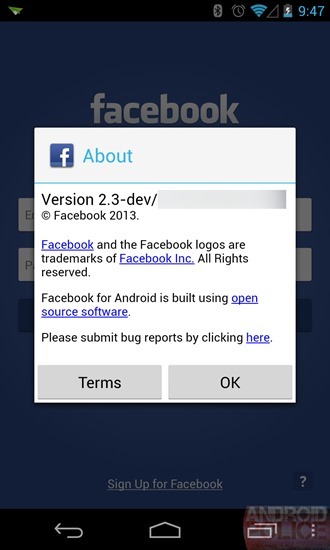
[ad_1]
Can Facebook flip the script on Thursday? The more I think about Facebook’s home screen app, Facebook Home, the more I think it’ll find plenty of success among social-networking enthusiasts. But Facebook could still lose the day if it focuses on the HTC Myst phone rather than its plans for Facebook on every phone.
Part of this is our fault: writers and readers love hardware. We’re physical beings, and physical objects excite us in a visceral way that even the best software can’t quite match. So when we hear that the recent Facebook leaks have the Facebook Home app running on a midrange Android phone called the HTC Myst, we’re curious about whether the Myst will be a special “Facebook phone.”
If Facebook focuses on the Myst, it’ll be Facebook’s mistake with the HTC Status (see slideshow below) all over again. The company clearly intended that phone to be the vanguard of a legion of phones with a dedicated Facebook button, but everyone was so transfixed by its general lameness that disappointment over the hardware clouded the potential of the software, and Facebook didn’t get any other takers.
What’s a winning strategy for Facebook? A downloadable Facebook Home app, quietly approved by major manufacturers so it can get the appropriate permissions, which takes over users’ home screens and supercharges Facebook information into other levels of the OS. The real question is how deep you can get into changing Android using a downloadable app, rather than pre-installed firmware; it’ll be fascinating to see if Facebook finds a way to tamper with the contacts or texting apps, for instance.
Finding a way to open up Facebook’s social apps to Android users would also be a big win. Most Web apps within Facebook don’t work or render properly on mobile, but they’re essentially Web apps. Android already has the inherent capability to turn Web apps into icons that look like native apps and work offline. Facebook could populate your Android phone with its own apps as well as those from Google Play.
Is A Successful Facebook Phone Impossible?
As I’ve said before, Facebook isn’t a full ecosystem that can support its own device. Comparing Facebook to Amazon here makes it clear. Facebook’s business is based on eyeballs, so it needs to be on as many devices as possible. It doesn’t have its own media store, music store, or full-scale app store, so it would need to partner for all of those things. Amazon makes money off of transactions, so it’s trying to encourage heavy use, and it has all of its own stores. Amazon has a complete story in a way Facebook doesn’t.
Facebook may also be trying to impossibly square a circle with devices like the Status and Myst. The company clearly thinks its prime market buys midrange phones, but individual midrange phones on a single U.S. carrier usually don’t do blockbuster sales. Midrange phone buyers tend to be picky about shape, size and color, and have a broad range of tastes.
Android Police reports(Opens in a new window) that Facebook Home has links for HTC Sense and Samsung’s TouchWiz, which is a really good sign. That means Facebook may be working with both of these manufacturers to show its new experience on a range of popular phones.
This good work could be clouded if Facebook spends too much time showcasing an uninspiring device, or if Facebook’s software only works on its own so-so phone. Facebook needs to keep its eyes on the true prize: not the few thousand who might buy an HTC Myst, but the billions of Android phone owners worldwide.
[ad_2]
Source link : https://www.pcmag.com/news/wanted-facebook-home-not-facebook-phone